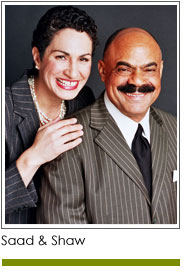 Great news – you just received a grant to help advance the work of your nonprofit! You’re excited and ready to get to work. But wait – do you know all that lies ahead?
Great news – you just received a grant to help advance the work of your nonprofit! You’re excited and ready to get to work. But wait – do you know all that lies ahead?
Receiving a grant is the start of a process that entails a lot of work. Yes, you have to complete the activities and meet the deliverables detailed in your grant request. But you also have to meet the funder’s reporting requirements. These can be simple and straightforward or time consuming and require additional work.
We suggest carefully reading the letter that accompanies your grant. Record the due dates for reports or updates required by the funder. Include the types of information required. For example, does the funder want a narrative describing the work in progress or accomplished? Do they want to know the number of people engaged or impacted? Is a financial report showing use of funds required? Is there a requirement for a fundraising match – meaning that you are required to raise an amount equal to the grant (or a percentage of it) in order to receive the funds? Will you receive the funds before you engage in the work, or after?
Plot out your evaluation work. Determine how you will collect evaluation information required by the funder. Carefully review your funding request and determine how to implement your proposed evaluation model. Do this early in the process of your work, if it is not already in place. In most cases you will need to track quantitative and qualitative data. You may also need to compare a change from how things were before the grant-funded project began and after the project ended. These will require you to think through the processes you use to collect and update information.
Include time during staff or management meeting for grant updates, upcoming reporting or renewal dates, and the status of collecting evaluation information. Knowing the dates for reports and renewals lets team members plan their work in advance. While you may “know” what you want to report on, knowing it and writing it are two different things. Writing both reports and grant proposals take time and should be scheduled in advance. They also require the involvement of the finance department and those actually delivering services, advocating, or managing a development project, for example.
Take time to build and sustain a positive relationship with your program officer. Share updates on your organization with a periodic phone call or email. Invite them to your events. Listen to their suggestions for how you can strengthen your organization. Your funders may be able to recommend a renewal or extension of your grant, or to introduce you to other funders, but it may be hard for them to do so if they don’t know what you’re up to.
Most importantly, don’t turn reporting into a last-minute nightmare that ends up penalizing you in the future because you didn’t follow the funder’s guidelines. Don’t send a signal to the philanthropic community that you don’t have your house in order.
Copyright 2020 – Mel and Pearl Shaw
When you are ready to grow your fundraising, prepare for a fundraising campaign, or increase board engagement we are here to help. Call us at (901) 522-8727. www.saadandshaw.com.










